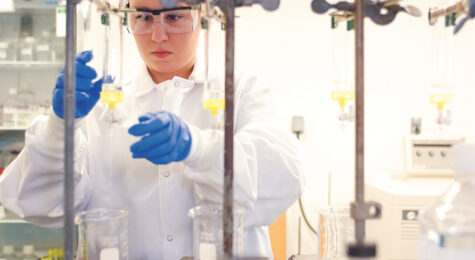Robotics Revolutionize Agriculture in Pennsylvania
Two industries come together to produce game-changing solutions for the future.
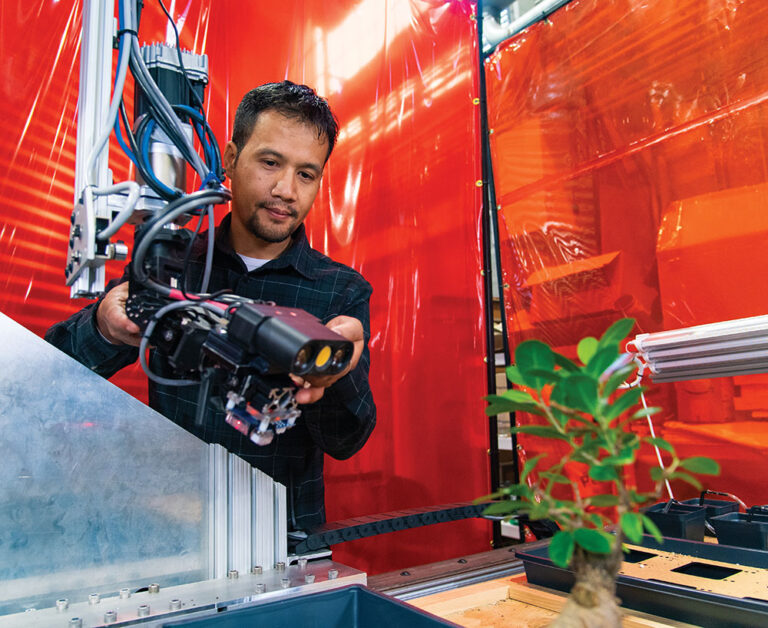
Agriculture is one of the oldest businesses in history, tracing its roots back over 12,000 years. However, this old-school industry has a new kid in class, with artificial intelligence (AI) offering remarkable agricultural solutions for a range of issues.
Agriculture in Pennsylvania enjoys a lengthy legacy, and the Keystone State has been a pioneer in the AI and robotics industries.
It is recognized for producing and selling more mushrooms than any other state, as well as being the second only to Wisconsin in the number of dairy operations by state.
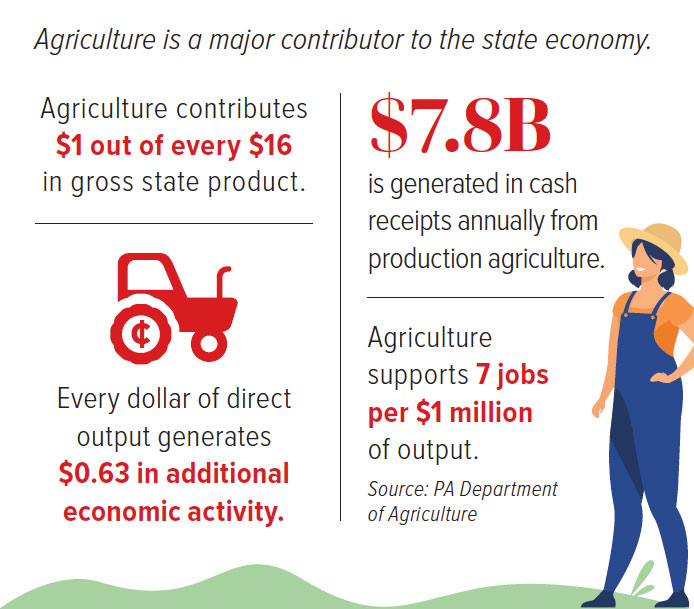
In addition, Pennsylvania is home to several research institutions that develop ingenious ways to improve agricultural practices, including Carnegie Mellon University (CMU) and The Pennsylvania State University. These resources have helped spawn industry leaders like Bloomfield, which has based business models off decades of AI research, with agriculture benefiting as a result.
George Kantor is a man who wears two agricultural hats, as a research professor at Carnegie Mellon and as a co-founder and chief scientist at Bloomfield.
“My day job is as professor at Carnegie Mellon, and the past 15 years has mostly been working on robotics research for agriculture advancement,” Kantor says. “That includes researching robots that can manipulate plants and working on better harvesting and pruning techniques. Most things aren’t quite ready for commercialization yet, but we are pushing forward.”
Kantor says CMU research involves working with all kinds of crops, including commodity crops like corn, wheat and soybeans, and specialty crops such as apples, blueberries and walnuts. CMU even has a Bumble Bee robot the size of a Volkswagen Beetle that serves as a vehicle for inspecting crops.
“Another big mission for CMU agriculture is training students, thereby building up the research knowledge to help make ag tech, robotics and AI have the bright future that we all know it can have,” he says.
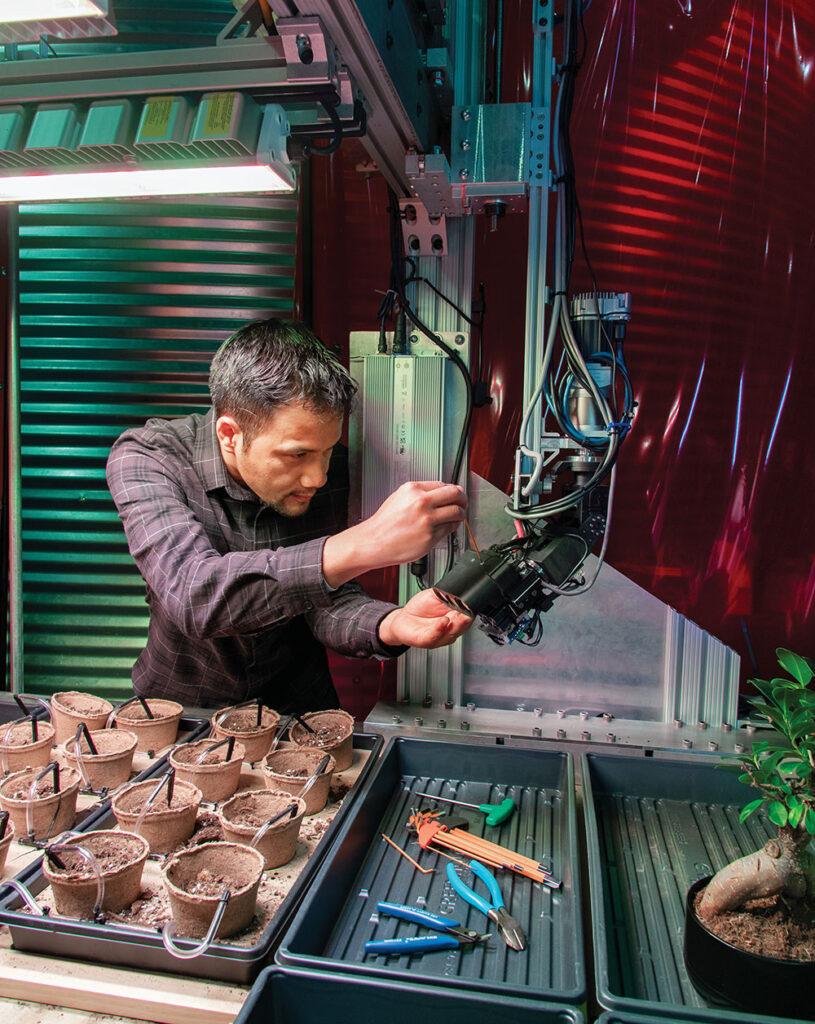
Camera for Specialty Crops
As for Bloomfield, Kantor says he got involved with a project at CMU to breed sorghum for the purpose of generating efficient biofuels, and one of the students in Kantor’s lab was Tim Mueller-Sim. Both Kantor and Mueller-Sim developed a high-tech camera to measure and analyze the sorghum’s characteristics, and Mueller-Sim wanted to turn their research and discoveries with the camera into a commercial endeavor. So, the two co-founded Bloomfield.
“Our primary product at Bloomfield is this sophisticated stereo camera with structured flash lighting, along with the artificial intelligence backbone that goes with it – that’s it,” Kantor says. “The camera became the center of what has become Bloomfield.”
Kantor says Bloomfield only analyzes specialty crops, including grapes. An example would be if they wanted to study grapes in a certain vineyard, they would bolt the camera on a tractor or ATV, drive around through the vineyard, and use the camera to 3D-view the grapes.
“We can look at different features of the grapevines like the flowers early in the season, the number of leaves, look for diseases – all those types of things,” he says. “We then map out what’s going on in the vineyard, and we provide that information to the growers so they can make decisions on how to better minimize their inputs and maximize their profits. The camera is an amazing agricultural advancement.”
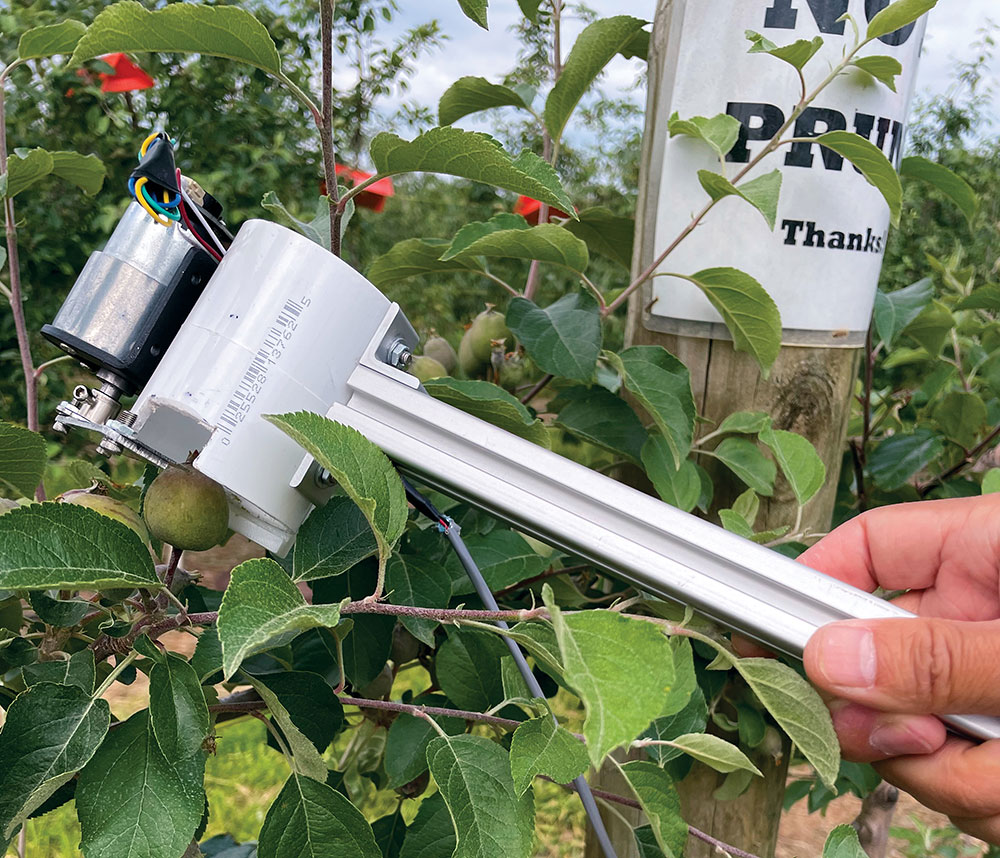
Great Minds at Work
At Penn State, there are other great minds at work. For instance, a robotic green-fruit thinner has been created by agriculture engineers to help combat a shortage of workers, which is making the traditional labor-intensive nature of manual thinning economically unfeasible.
The technology has been successfully tested on green apples. According to a U.S. Apple Association analysis of USDA data, the apple crop for 2022 was projected to be 10.7 billion pounds.
Dr. Long He is an assistant professor, Department of Agricultural and Biological Engineering at Penn State and a noted agricultural robotics researcher.
He previously worked to develop automated components for mushroom picking and apple tree pruning, and lately, his team has been working on a robotic crop load management system for apples, which he says is in the research prototype stage and will be “very cool” when running in orchards.
“Future farming highly relies on automation and precision,” he says. “AI can be used for object detection, big data analytics, decision-making and robotic operation in agricultural applications. AI is the solution to address many challenges in the complex agricultural environment to achieve automation and precision.”
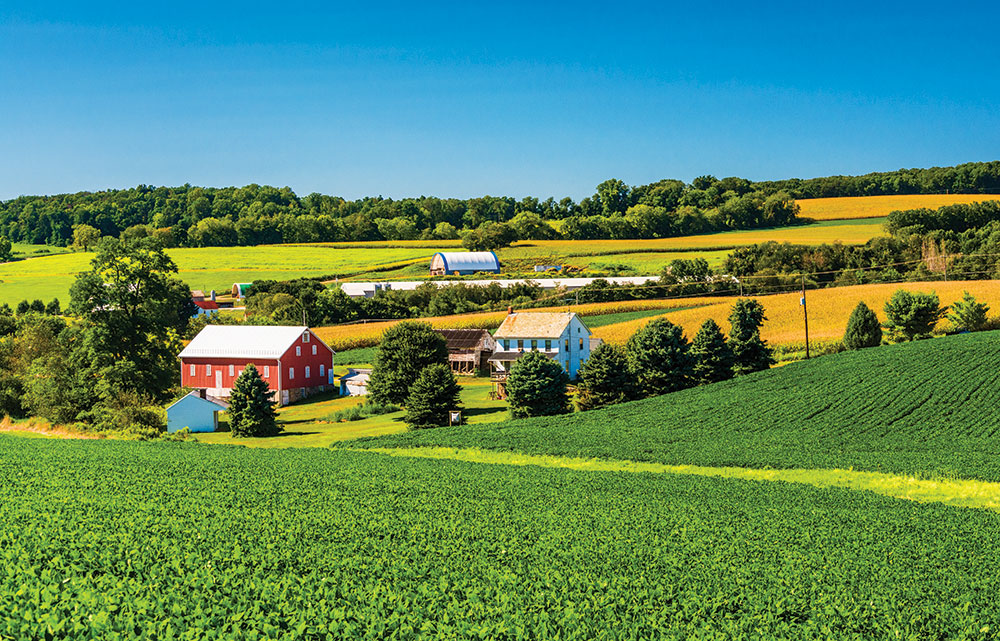
Agriculture in Pennsylvania Continues to Grow
Agriculture remains a major growth industry in Pennsylvania, with one of every 10 jobs linked to the ag sector. Nearly 53,000 farms generate employment and economic activity across the commonwealth’s 67 counties.
In addition, more than 2,300 food-processing companies operate across the state, working with crops, pork, poultry, beef, sheep, dairy, cereals, juices, pasta, beverages, snack foods and more.
In 2019, the Pennsylvania Farm Bill was expanded to include opportunities and resources to remove barriers within the ag industry. Investments from the PA Farm Bill have surpassed $76 million since its introduction.
Did You Know?
Pennsylvania also has a vast charitable food network, partnering with nearly 3,000 local food pantries, soup kitchens and shelters to serve more than 2 million people in need every year.
One of the bill’s initiatives is to develop programs to attract the next generations of employees to fill farming and tech-based positions throughout agriculture. Statewide programs to secure a stronger future include Ag & Youth, Farm to School, Beginning Farmer Tax Credits and Farm Vitality.
Pennsylvania has long been a national leader in organic production. Organics involves utilizing sources like manure and compost to help build rich soil that provides natural nutrients to crops and requires less dependence on synthetic fertilizers.
The commonwealth has 1,048 certified organic farms and 107,550 acres of certified organic land, and Pennsylvania ranks No. 3 in the nation in overall organic sales. In other accolades: The state ranks No. 1 in organic livestock and poultry sales, No. 1 in organic eggs, No. 1 in organic mushrooms and No. 8 in organic milk.
– Staff Writer Kevin Litwin contributed to this article.
Get to Know Pennsylvania
Want to learn more about living and working in Pennsylvania? Check out the latest edition of Livability Pennsylvania: Work Smart. Live Happy.


